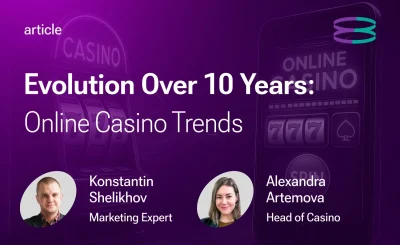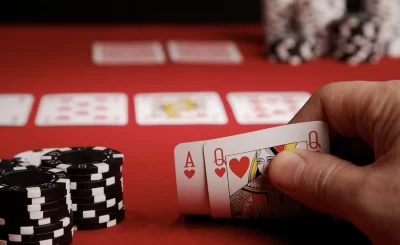When you think of poker, what comes to mind? Glitzy casinos? High-stakes bluffs? For most, it’s a game of chance, a hobby. But what if I told you that the felt-covered table is a powerful, undercover gym for your brain?
That’s right. Beyond the chips and cards lies a profound mental workout. Playing poker strategically engages a complex web of cognitive skills and emotional controls that can genuinely enhance your mental fitness. Let’s dive in.
Your Brain on Poker: More Than Just a Game
Poker isn’t like flipping a slot machine lever. It’s a dynamic, decision-heavy pursuit that forces your brain to fire on all cylinders. Every hand is a new puzzle. You’re not just playing the cards; you’re playing the people, the probabilities, and, most importantly, your own mind.
The Ultimate Cognitive Workout
So, what exactly is getting a workout? Well, pretty much everything in your head.
- Working Memory: You have to keep track of your cards, the community cards, the betting action, and potential hands your opponents could have. It’s like juggling mental plates while walking a tightrope.
- Critical Thinking & Logic: Poker is a game of incomplete information. You constantly have to deduce what others hold based on their actions. “He raised before the flop, but now he’s checking… what does that mean?” This is real-time hypothesis testing.
- Probability and Math: You don’t need to be a mathematician, but you quickly learn to calculate pot odds and implied odds almost instinctively. It’s practical, applied math that feels more like a superpower than homework.
- Focus and Concentration: In our world of endless notifications, sustained focus is a rare commodity. A poker session demands it for hours. You learn to tune out distractions and zero in on the task at hand.
The Unexpected Mental Health Perks
This is where it gets really interesting. The cognitive benefits are clear, but the impact on your mental and emotional well-being can be, honestly, transformative.
Building Emotional Resilience
Poker is a brutal teacher of emotional control. You will lose. A lot. And sometimes, you’ll play a hand perfectly and still lose to a lucky draw. This is known as a “bad beat,” and how you handle it is everything.
It teaches you to separate the quality of your decision from the randomness of the outcome. This is a profound life skill. You learn to process frustration, manage tilt (that emotional state where you start playing poorly after a loss), and bounce back. It’s a masterclass in resilience.
Sharpening Your Social and Observational Skills
In an age of digital isolation, poker is a deeply social game. You’re reading micro-expressions, listening for changes in tone of voice, and noticing betting patterns. You’re building a profile of your opponents not through what they say, but through what they do.
This practice in empathy and observation—this “people-reading”—translates directly to better social intuition off the table. You become more attuned to the unspoken cues in conversations, in meetings, in everyday interactions.
Key Cognitive Skills Poker Develops
| Skill | How Poker Trains It |
| Decision-Making Under Pressure | Forces you to make calculated choices with significant consequences (your chips) and a clock ticking. |
| Risk Assessment | You constantly weigh the potential reward of a bet against the risk of losing your stack. |
| Patience and Discipline | You learn to fold hand after hand, waiting for the right moment to act. It’s the antithesis of impulsivity. |
| Adaptability | Game conditions change constantly. New players, shifting table dynamics, different stack sizes—you must adapt your strategy on the fly. |
How to Get Started for Cognitive Benefits
You don’t need to gamble your life savings. In fact, for mental training, high stakes are counterproductive. The goal is mindful practice, not financial stress.
Here’s a simple path to start using poker for cognitive enhancement:
- Learn the Basic Rules. Understand hand rankings and the flow of a hand (pre-flop, flop, turn, river). Free resources online are plentiful.
- Play for Free. Use play-money apps or online sites. The goal here isn’t to win fake money, but to get comfortable with the mechanics and decision points.
- Move to Micro-Stakes. Play with real money, but at the lowest possible levels—think pennies. This introduces real consequence without real risk, sharpening your focus dramatically.
- Review and Reflect. This is the most crucial step. After a session, think about your big decisions. Not just the losses, the wins too. Was your reasoning sound? This metacognition—thinking about your thinking—is where the real growth happens.
A Final Thought: The Mindful Player
Poker, at its best, is a form of active meditation. It demands that you be fully present, observing your thoughts and emotions without letting them control you. The click of chips, the feel of the card, the scan of the table—it all pulls you into the now.
In a world that often feels chaotic and unpredictable, the poker table offers a contained space to practice grace under pressure. To make peace with variance. To understand that you can do everything right and still not win the hand… and that’s okay. The true win isn’t always the pot; sometimes, it’s the quiet satisfaction of a well-played game, and a mind that’s just a little bit sharper than when you sat down.






